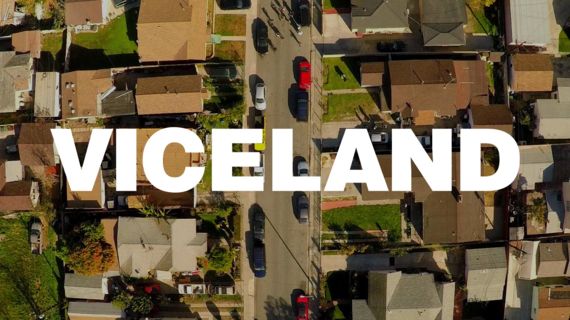Sometimes great brands make some head-scratching decisions. Straight off the heels of their success with their weekly show on HBO, Vice is making a bold move today with the launch of their very own 24-hour channel. That's right, the disruptive, digital native brand is moving to cable with 'Viceland.' By launching on February 29th, is this a tongue and cheek way of saying they are taking a "leap" backwards?
Striking deals with A+E and Disney has made a lot of sense economically for Vice. It's also a good move A+E, who will be slotting Viceland into the channel previously held by the History Channel spinoff, H2. But does any of this make sense for Vice strategically?
Household penetration of cable and satellite is huge, but I don't think these are the same households that Vice is after. The types of Americans willing to fumble with their remote and tune in to such basic cable fare as "Finding Bigfoot," "Dance Moms," and "Duck Dynasty" are the antithesis of Vice's target audience.
The unplugged millennial generation have long since sworn off Verizon and Time Warner. If they even own a TV, it's for Spotify, Netflix, and PS4. They won't be hooking up their cable boxes anytime soon.
As we have seen with similar experimental ventures targeting millennials, like Current TV (and later Al Jazeera America), there is a very good chance that this is a bomb waiting to explode. But if there is anyone with the creativity and editorial passion to make something special with their programming, it's the team at Vice.
So what are they doing to fill up 24 hours a day? There will indeed be unique programming that cannot immediately be viewed on YouTube. But there is some serious cause for concern. Their plans for launch day include executives listening to voicemails for 13 hours in a row. I can't tell if this is a sign of genius or lunacy.
Honestly, it's probably both.
This is a head-scratcher, for sure. To Vice's credit, they seem to be aware that a traditional channel isn't really in line with rapidly changing millennial consumption habits. Viceland promises to have fewer traditional ad buys (reportedly just eight minutes of commercials per hour), opting for more branded content.
The idea behind Viceland reminds me of the classic Seinfeld episode where George Costanza defends their "show about nothing" to NBC execs by saying people will watch it "because it's on TV." I don't think that holds true in 2016. Millennials are inundated with content 24/7, and if it isn't one of the first things that pop up when they open their Netflix or HBO Go app, they're not seeing it.
While I personally can't wait to watch some of Viceland's new shows, only time will tell if they can successfully attract their fans to an old platform.
There's been another head-scratcher moment in the news recently. Amazon, which recently launched their first brick-and-mortar bookstore in Seattle, is rumored to be opening up hundreds of retail outlets.
While at first this may sound like another curious step backwards into the 20th century, Amazon seems to have a better grasp than Vice on what they are trying to accomplish with this expansion into an older marketplace.
Amazon has transformed themselves from a bookstore killer to a Best Buy killer. They are a fully fledged electronics giant, who have mastered analytics and logistics better than anyone else.
For the past few years, I've gone into Best Buy, had a look at what I liked, and went on Amazon to get the better price. Two days later, it's in my home.
Amazon's investment in brick and mortar stores is about getting rid of the middle man entirely.
What the Amazon Echo and Kindle Fire need is a dedicated showroom. What Amazon-only published books need is a space where they can stand out. Amazon is also the only retailer that sells Exploding Kittens: A Card Game About Kittens and Explosions and Sometimes Goats, one of the most successful Kickstarter campaigns ever.
This isn't about a bookstore; it's an extension of their warehouse into a customer-friendly space. What their amazing delivery services need are more places to pick up and return products.
Amazon is one of the few digital brands with the capital to create an in-person customer service experience for a website.
Whether it's a digital-focused company delving into the world of basic cable, or America's biggest online retailer emulating a mom and pop bookstore, sometimes great brands make head-scratching decisions. I hope both Viceland and Amazon succeed in their new ventures, but with the announcement that Viceland won't release their Nielsen ratings for the first six months, I expect it to be a rocky start.
Advertisement

